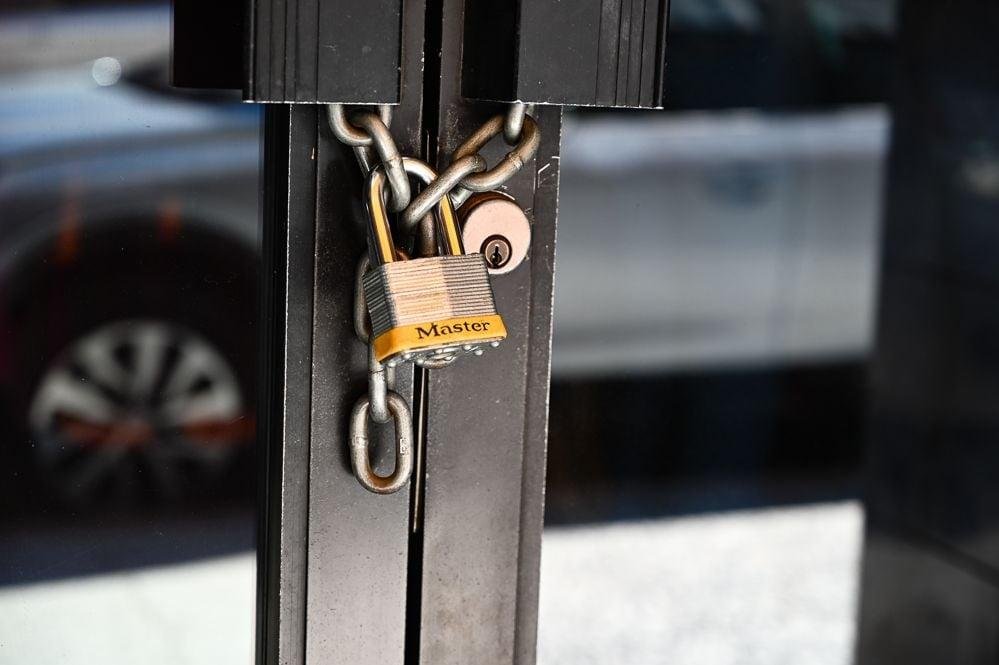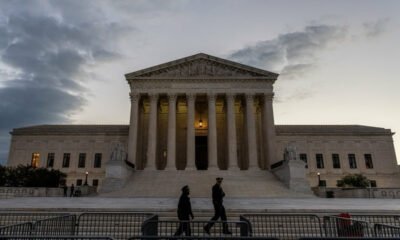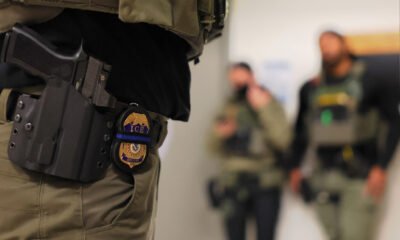border
DC Circuit Upholds Ruling to Halt Venezuelan Deportation Flights

A panel from the D.C. Circuit Court denied the Justice Department’s request on Wednesday to lift a temporary restraining order that halts the deportation of migrants under the Alien Enemies Act. The decision came from a three-judge panel that ruled 2-1 against the Trump administration’s appeal of Chief U.S. District Judge James Boasberg’s order.
This legal battle escalated after the government sent 137 Venezuelan migrants, linked to the Tren de Aragua gang, to a notorious mega-prison in El Salvador. The American Civil Liberties Union initiated the lawsuit on March 15 to block the deportation of five Venezuelan migrants who had no connections to the gang, arguing that they were apprehended solely based on tattoos.
Judge Karen Henderson, a George H. W. Bush appointee, expressed support for Boasberg’s decision to freeze the deportations but contended that the appeals court lacked jurisdiction to review the restraining order, which traditionally cannot be appealed. She emphasized the potential for “great and truly irreparable harm” to the plaintiffs if deportations continued, as the Justice Department indicated plans for immediate removal.
“Worst of all,” Henderson stated, “the government has confessed that its preference that plaintiffs use habeas corpus to challenge their removal is a phantasm.” She criticized the lack of due process, warning that the situation could lead to irreversible consequences.
In dissent, U.S. Circuit Judge Justin Walker, appointed by Donald Trump, argued that the plaintiffs should have filed their case as a habeas corpus action in Texas. Walker highlighted that the district court’s orders might jeopardize sensitive negotiations on national security, suggesting the government’s interest in quickly deporting these individuals outweighed the plaintiffs’ litigation choices.
The panel had previously heard arguments on Monday, revealing a split on how to interpret the unprecedented nature of the case. Judge Patricia Millett, appointed by Barack Obama, pointed out that the Alien Enemies Act has only been applied three times, all prior to peacetime, while Walker made a historical comparison to a past ruling involving President Nixon.
The heart of the controversy lies in Boasberg’s March 15 order, which aimed to stop further deportations and recall active flights already in progress. However, the government argued that two flights had already departed international waters by the time the order was issued.
Millett raised concerns that lifting Boasberg’s order could leave around 300 similarly situated individuals vulnerable to immediate deportation without notice. Deputy Assistant Attorney General Drew Ensign maintained that the Alien Enemies Act does not require prior notification before initiating removal procedures, allowing affected individuals to file for habeas corpus claims post-removal.
“Nazis got better treatment under the Alien Enemies Act; they had hearing boards before removal,” Millett remarked. She condemned the absence of regulations and notice for the detainees, emphasizing the fundamental rights at stake.


















